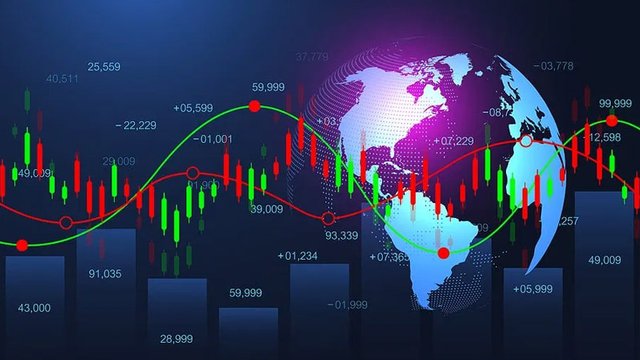
Forex trading, the buying and selling of currencies, presents lucrative opportunities for traders worldwide. However, to succeed in the dynamic and fast-paced global currency market, one must develop effective strategies. In this article, we will explore key strategies that can help traders master forex trading and increase their chances of success.
Understanding the Forex Market:
a. Introduction to the forex market and its unique characteristics
b. Major participants in the market and their roles
c. Factors influencing currency exchange rates
Fundamental Analysis:
a. Importance of analyzing economic indicators, news releases, and central bank decisions
b. Identifying macroeconomic trends and their impact on currency values
c. Evaluating geopolitical events and their effects on currency markets
Technical Analysis:
a. Introduction to charts, patterns, and indicators used in technical analysis
b. Applying support and resistance levels for entry and exit points
c. Using trend lines and moving averages to identify market trends
Risk Management:
a. Implementing proper risk management techniques to protect capital
b. Setting stop-loss orders to limit potential losses
c. Calculating position sizes based on risk tolerance and account balance
Developing a Trading Plan:
a. Defining trading objectives and goals
b. Outlining entry and exit criteria for trades
c. Setting realistic profit targets and risk-reward ratios
Different Trading Styles:
a. Exploring various trading styles, such as day trading, swing trading, and position trading
b. Identifying the trading style that aligns with individual preferences and time availability
c. Adapting strategies to suit the chosen trading style
Utilizing Technical Tools and Indicators:
a. Introduction to popular technical indicators, such as MACD, RSI, and Bollinger Bands
b. Using oscillators and momentum indicators to confirm trade setups
c. Employing chart patterns and Fibonacci retracements for trade identification
Trading Psychology:
a. Understanding the impact of emotions on trading decisions
b. Developing discipline and patience in executing trades
c. Managing greed and fear to avoid impulsive trading
Backtesting and Demo Trading:
a. Importance of backtesting trading strategies using historical data
b. Utilizing demo trading accounts to practice and refine strategies
c. Evaluating performance and making necessary adjustments based on results
Continuous Learning and Adaptation:
a. Staying updated with market news, trends, and industry developments
b. Learning from successful traders and market experts
c. Adapting strategies as market conditions evolve
Conclusion:
Mastering forex trading requires a comprehensive understanding of the market, effective strategies, and disciplined execution. While forex trading offers significant opportunities for financial gain, it is essential to consider its compliance with Islamic principles for individuals concerned about the halal or haram status.
The permissibility of forex trading in Islam is a subject of debate among scholars. Some argue that forex trading involves elements of uncertainty (gharar) and speculation (maisir), which are prohibited in Islam. However, others believe that forex trading can be permissible if certain conditions are met, such as ensuring trades are conducted on a spot basis, without interest (riba), and avoiding excessive speculation and gambling-like behavior.
To determine the halal status of forex trading, it is advisable to seek guidance from knowledgeable scholars or Islamic finance experts who can provide insights into specific practices and conditions that align with Islamic principles. They can help individuals navigate the complexities of forex trading and ensure compliance with their religious beliefs.
It is worth noting that some brokers offer Islamic forex trading accounts that adhere to Sharia-compliant principles by eliminating overnight interest (swap) charges and providing trading conditions that align with Islamic finance requirements.
Individuals interested in forex trading and concerned about its halal status should conduct thorough research, consult with scholars, and evaluate their own comfort level and beliefs. By doing so, they can make informed decisions and engage in forex trading practices that align with their religious obligations.
While mastering forex trading requires skill, knowledge, and practice, it is important to prioritize ethical considerations and adhere to one's religious principles. Forex trading can be a challenging yet rewarding endeavor when approached with the right mindset, discipline, and adherence to Islamic guidelines.
Ultimately, individuals must evaluate the specific practices and conditions of forex trading to determine if it aligns with their understanding of Islamic principles. By seeking knowledge, guidance, and adhering to their religious beliefs, individuals can engage in forex trading in a manner that is halal and consistent with their values.
Consistently made over $20,000 in income from home with the benefit of smooth playback and sticky online interest. |F330″ I actually made $18,000 with this perfect home income. Everyone can now without a doubt... https://prizebest01.blogspot.com/
Downvoting a post can decrease pending rewards and make it less visible. Common reasons:
Submit